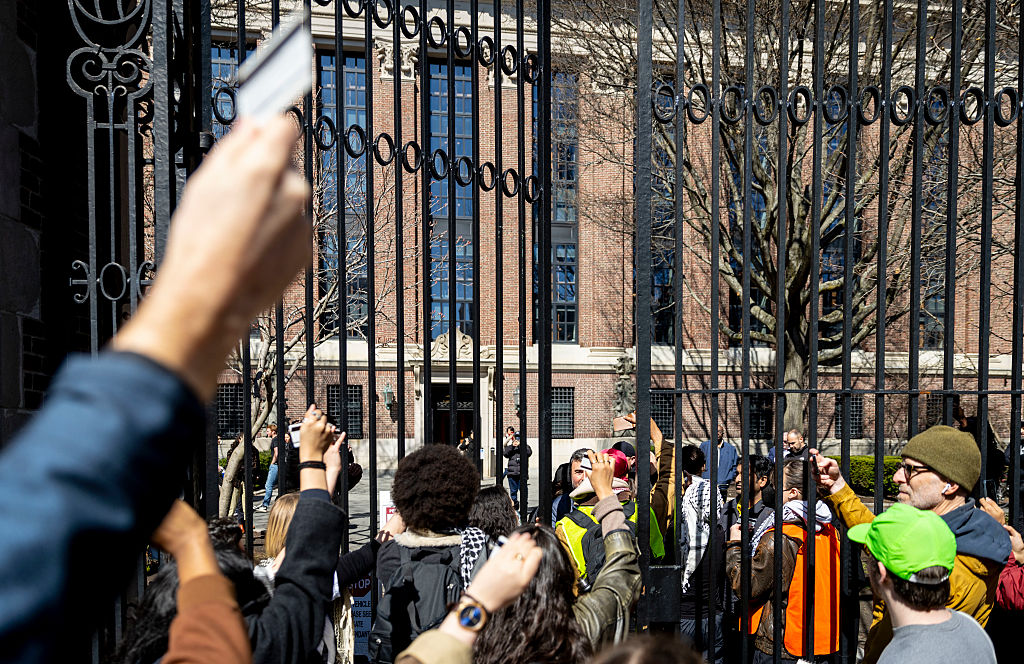Layoffs? Hiring freezes? Pay cuts? Furloughs? Employers weigh options
Unemployment in the U.S. remains at a 50-year low, with the job market a main engine of economic growth in recent years. But that strength is now in jeopardy as companies take stock of the growing impact from the coronavirus pandemic.
Already, some employers are responding to the health crisis by freezing new hires or cutting staff. The South by Southwest festival fired one-third of its staff in a "heartbreaking" decision after it canceled the annual event due to the coronavirus. Airlines such as Delta have announced hiring freezes to cope with a sudden drop in demand as travelers postpone trips due to fears of contracting the disease.
After years of job growth, the coronavirus — declared a pandemic by the World Health Organization on Wednesday — is threatening what had been one of the strongest labor markets in decades. Through January, idled workers had rejoined the labor force as employers boosted wages. President Donald Trump boasted on Tuesday that his administration has brought about the "best unemployment numbers in the history of our Country."
But in February, the coronavirus outbreak expanded beyond China and emerged in the U.S., causing consumers to cut back on travel and spending. One job expert predicts the U.S. is likely to witness waves of layoffs.
"Companies that are directly involved in this first phase of the spreading of the coronavirus — airlines, hotels and cruise lines ,obviously — that's where you will see a dramatic drop in demand," said Andrew Challenger, senior vice president at Challenger, Gray & Christmas, an outplacement firm. "If it persists, it'll lead to layoffs."
A number of airlines have already announced hiring freezes as they cut flights due to a sharp drop in demand, the first step before layoffs, he noted. And if more companies puts the brakes on hiring as they wait out the pandemic, that could stymie job growth.
"This is how downturns affect people — it's jobs," Challenger added.
Hiring freezes and pay cuts
As the virus spreads across the U.S., businesses are telling employees to halt non-essential travel and cancel plans to attend professional events. Major industry conferences are also being postponed or canceled in an effort to halt the illness. E3, the gaming industry gathering, on Wednesday said it is canceling its June conference in Los Angeles.
"The E3 team is devastated to share this news. This decision was not reached lightly, but it is the right one for the health and safety of all involved," the conference said on Twitter.
Those decisions are weakening demand for flights, hotels, restaurants and the enterprises that rely on tourism and business travel. Delta on Tuesday said it would begin a hiring freeze and cut flight capacity by 15% due to lower demand. American Airlines said it would delay training of new pilots and flight attendants, while embattled airline maker Boeing, the largest exporter in the U.S., plans to put on hold all new hires.
Airline CEOs are taking pay cuts to signal they're feeling the pain. United CEO Oscar Munoz will forgo his base salary until at least June, while Southwest's CEO is taking a 10% pay cut.
The switch from a gung-ho job market to an uncertain one "feels so surprising because two weeks ago we had this phenomenal labor report," Challenger said. "Then the switch flipped and they are stopping hiring."
Jobs in service sectors such as restaurants, hotels and retailers that require interaction with customers may suffer next, Challenger said.
Already, there are some signs that service businesses in parts of the country affected by the virus are cutting back on staff. About 200 workers for a Seattle-based restaurant chain are temporarily out of work, although it's unclear when its locations will reopen, according to the Pacific Northwest publication Crosscut.
Keep an eye on the job numbers
In some cases, employers are asking workers to take furloughs, although for now that appears to be in cases where workers may have come in contact with COVID-19 infections. For instance, Kaiser Permanente placed five workers on paid furloughs after they were potentially exposed to coronavirus.
The more common strategy at the moment is asking workers to do their jobs from home. Businesses ranging from Twitter to Google have asked their employees to work remotely in an effort to halt the spread of the disease.
But the next step could be companies that cut staff because of lost revenue, Challenger said. The job numbers for March, which will be released by the government in early April, "will show a real arresting of hiring," he predicted. "You'll get a real sense that employers stopped hiring amidst uncertainty."





